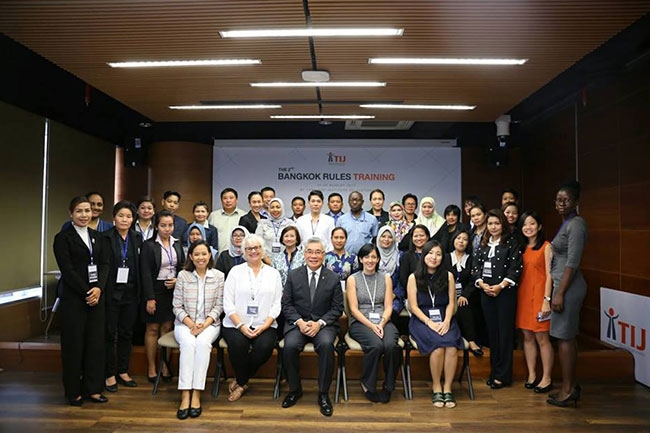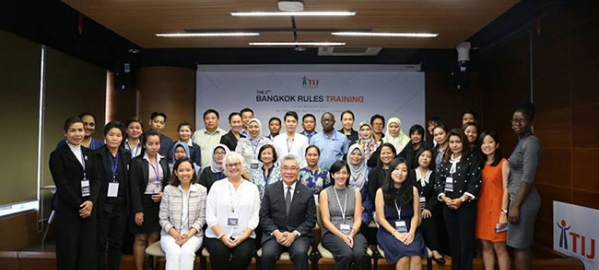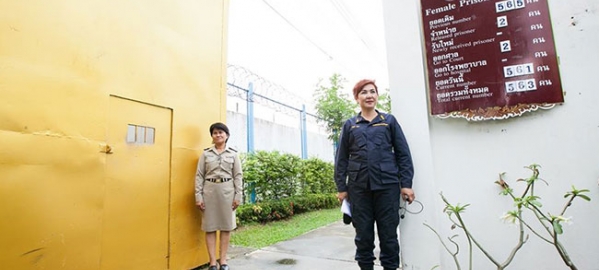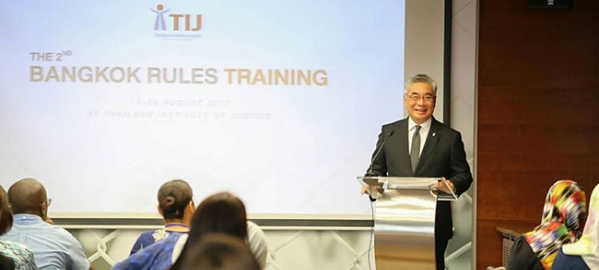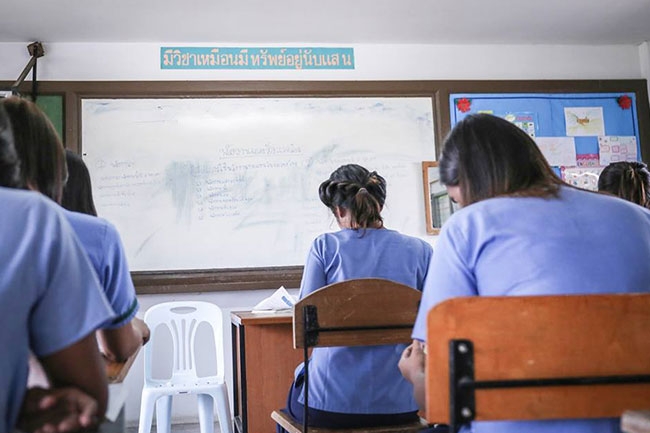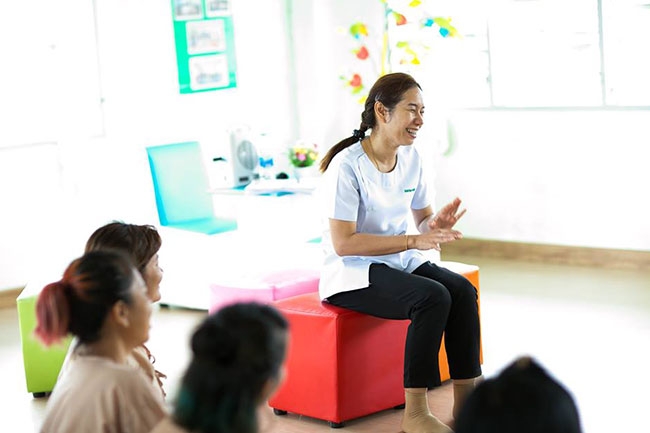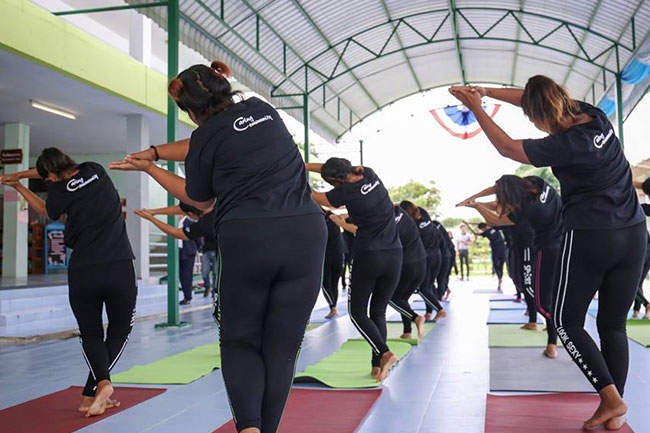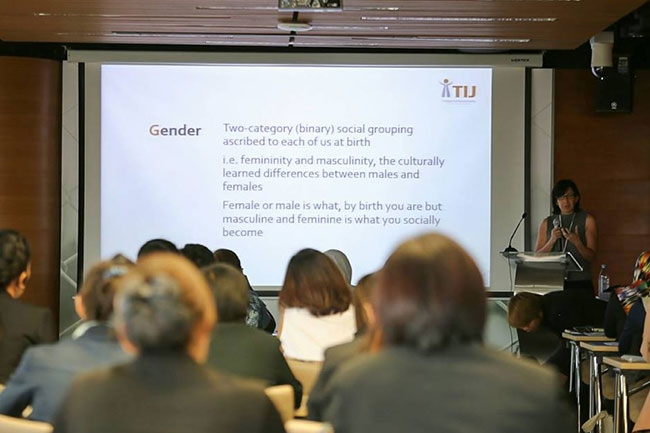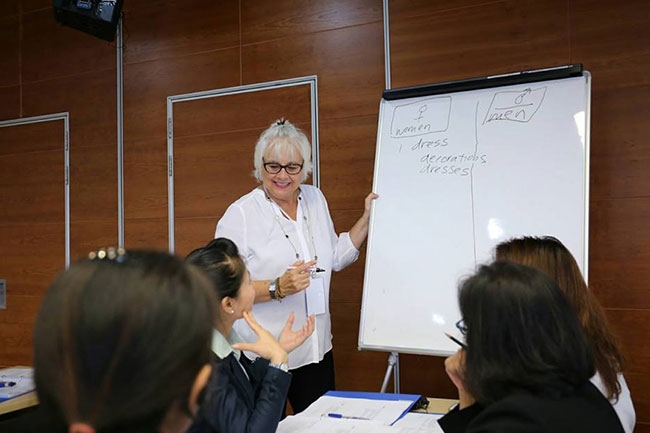Thailand Institute of Justice organizes a Training on
“The Implementation of the Bangkok Rules,”
Another Rule of Law for the Treatment of Women Prisoners
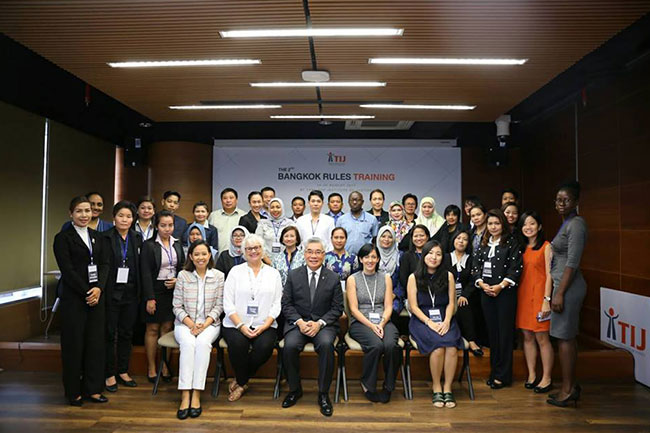
In compliance with the implementation of the United Nations’ treatment guidelines towards women prisoners in Thailand and plans for regional execution, Thailand Institute of Justice (TIJ) organizes the second training on “The Implementation of the Bangkok Rules” for senior correctional officers and ASEAN members. Held between 14 - 25 August 2017, the workshop aims to advocate a novel standard of the conduct towards women prisoners to align with human rights perspectives, as well as prepare them for their release and reduce the chances that they will go back to the vicious cycle. The training will also promotes the expansion of model prison projects across ASEAN.
Although the percentage of women prisoners is relatively small, there has been a significant increase across the globe during the past 10 years and at a speed that is more rapid than that of male prisoners. In Thailand, the Department of Corrections stated that in 2017, there has been an increase of up to 38,678 women prisoners, which is almost two times the number recorded in 2008 (at 26,321). Additionally, Thailand is ranked fourth in the world with the most women prisoners following the United States of America, China and Russia. When compared to a population of 100,000 individuals, Thailand has the highest percentage of women prisoners in the world.
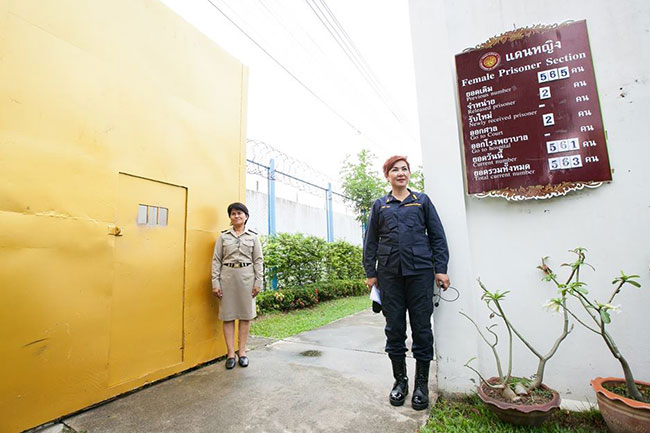
Women prisoners usually have similar backgrounds, ones that seem to pave their way towards the penal institution. Many have been a victim of physical and psychological abuse, have a history of drug addiction, have had problems with their physical or psychological health as well as have not had adequate education or career opportunities. If these women do not receive enough support or the kind of treatment that considers the delicacy of their gender, chances are they may become a victim again once they enter the prison and may go back into the cycle of doing wrong. As Thai prisons are designed for male inmates, the differences in gender-related requirements are therefore neglected.
These problems have therefore dawned the proposal of the Implementation of the Bangkok Rules. It puts onto the United Nations’ treatment guidelines towards women prisoners and measures that does not require confinement. HRH Princess Bajrakitiyabha sees the importance of these issues and has worked with various related organizations in Thailand to promote the Implementation of the Bangkok Rules amongst the United Nations communities. The Bangkok Rules has been approved on 21 December 2010 and it is the first Thai-initiated set of rules to be adopted by the United Nations.
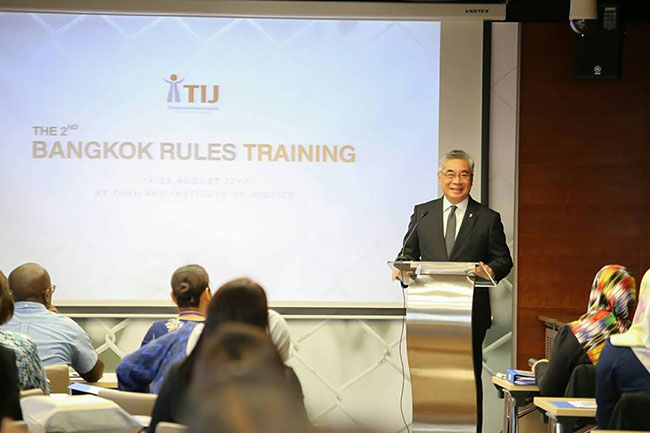
Prof. Dr. Kittipong Kittayarak, Executive Director of Thailand Institute of Justice, shared that TIJ’s mission is to promote the execution of the Implementation of the Bangkok Rules within and outside of Thailand. Recently, TIJ had the chance to host a special training on the treatment guideline towards women prisoners in accordance to the Implementation of the Bangkok Rules. The workshop was especially vital in furthering the expansion of the model and its execution across the ASEAN countries, in the hope of adjusting the paradigms of women offenders that have to go through the criminal justice system. The workshop also aimed to foster public awareness about gender-related prerequisites as well as the better treatment towards women and children in the criminal and juvenile justice system.
“The population of women prisoners across the globe has increased significantly, especially when compared with male inmates. Eight out of 10 countries in the ASEAN network are currently going through this problem. This will eventually lead to the overpopulation of female inmates, which will then effect the management within prison grounds and the rehabilitation of prisoners. We see this training as an important task for TIJ and hope to nurture a better understanding amongst the correctional officers across ASEAN about gender-related requirements of women prisoners,” said Prof. Dr. Kittipong Kittayarak.
This training has the objectives of providing relevant guidance and information surrounding the Implementation of the Bangkok Rules for future execution. Participants are encouraged to design an action plan of the implementation, rules and regulations that can be enacted accordingly. It also allows participants an opportunity to exchange viewpoints on the issue, its challenges and the guideline for appropriate treatments towards female inmates. Moreover, participants will get the chance to evaluate the current circumstances within prison grounds and whether the ongoing programs coincide with the Implementation of the Bangkok Rules. In addition, this gathering will help create a strong network of senior correctional officers across ASEAN.
Dr. Barbara Owen, a specialist on the Implementation of the Bangkok Rules, and Dr.Samantha Jeffries, a specialist on criminology and sexuality from Australia’s Griffith University, and Chontit Chuenurah, Chief of the Implementation of The Bangkok Rules and Treatment of Offenders Programme of TIJ join the training as special speakers.
The session is composed of 12 topics, all of which are the foundations of the Implementation of the Bangkok Rules, as the followings:
- The management within prison grounds with an emphasis on gender
- The organization, entrance and filtering within prison grounds
- General health and sanitary measures
- Health attentiveness in the case of special prerequisites
- The safety of women prisoners
- Regulations and safety measures within female prisons
- Contacting the outside world
- Activities and programs to rehabilitate female inmates
- Pregnant women, mothers and juveniles living in prisons
- Group of individuals that require special attention
- Preparing for release
- Correctional officer operations related to women prisoners
In addition, the training allows participants to observe the daily operatives at Phra Nakhon Si Ayutthaya Provincial Prison, Women Correctional Institution for Drugs Related Offenders - Thunyaburi, Pathum Thani and Thonburi Women Correctional Institution — all of which are model prisons currently applying the Implementation of the Bangkok Rules.
Since the year 2015 until now, there have already been six model prisons including
- Uthai Thani Provincial Prison
- Chiang Mai Women Correctional Institution
- Phra Nakhon Si Ayutthaya Provincial Prison
- Women Correctional Institution for Drugs Related Offenders - Thunyaburi, Pathum Thani
- Chon Buri Institution for Female Offenders and
- Samut Sakhon Central Prison.
In 2017, TIJ has further accepted the application of and selected prisons in the North of Thailand. While currently in the process of evaluating their readiness for execution, it is expected to see an increase of one or two more model prisons this year. Furthermore, TIJ has carried out long-term prison development plans for the next three years (2017-2019), with an emphasis on expanding model initiatives throughout every region in Thailand and strengthening the knowledge on standard prison measures and the Implementation of the Bangkok Rules. This, in return, should enable greater understanding as well as better exchange of perspectives at a wider extent.



